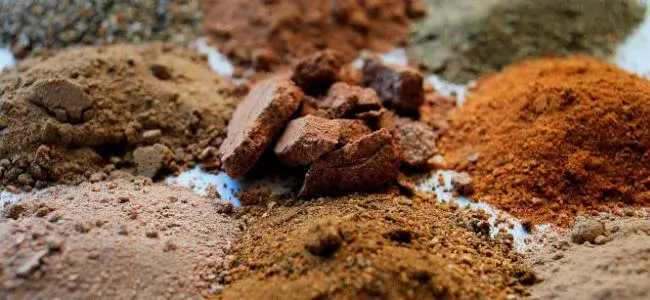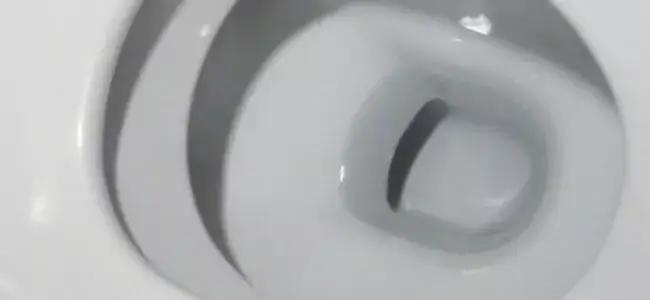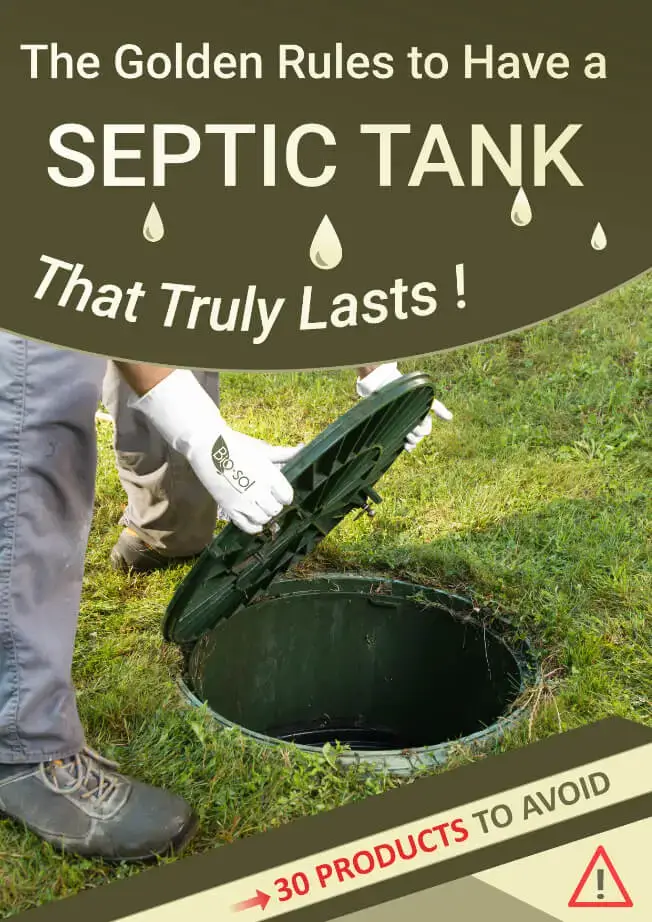Why is my septic tank water pitch black ?

TABLE OF CONTENTS
Septic tank water is usually yellowish or turbid as it gets into the septic tank. However, there are some situations when the wastewater turns into a pitch-black tone when it gets into the septic tank. This is usually an indication that something is wrong with the septic system. There are two main reasons why your septic tank water might turn pitch black. Either your septic tank is getting corroded, or you have contamination by inorganic waste.
Corrosion of iron tanks by septic tank water
Sulfate-reducing anaerobic bacteria usually get extremely active if the septic tank water has a sulfate source. These bacteria produce hydrogen sulfide which is the gas that has a rotten-egg kind of smell. If your tank or any of its components is made of iron, the hydrogen sulfide will react with it and thereby form black iron precipitates. This is what ultimately leads to septic tank water becoming pitch black. There are a number of remedies to this problem. Since it is not feasible to stop the production of hydrogen sulfide in the septic tank, your best bet is to keep away from iron tanks. If you already have one installed, consider replacing it with a plastic, polymer, concrete or fiberglass tank. You could also reduce the sulfate from the water sources through reverse osmosis, ion exchange, and distillation. Using a water softener can also help in removing the sulfate from the water.
Increase in organic load in advanced septic systems
In some situations, the sensitivity of the receiving environment, the nature of the wastewater produced or the soil conditions on site may not allow for the adoption of conventional septic systems. In such cases, advanced septic systems are installed. Advanced septic systems are specially designed to significantly reduce the biological oxygen demand, total suspended solids, pathogens, as well as some nutrients in the wastewater before sending the water into the leach field. Unlike conventional septic systems, advanced septic systems largely depend on aerobic bacteria for the breaking down of organic matter.
An aerobic treatment unit (ATU), which is a type of an advanced septic system, treats wastewater more efficiently than the conventional septic system would because of its reliance on bacteria that thrive in oxygen. These bacteria are usually suspended in the wastewater in the septic tank. However, if something goes wrong in the system that can affect the microbial activity, the quality of effluent from the tank may be compromised. For instance, if the aeration chamber malfunctions for whatever reason, it will result in a shortage of oxygen in the tank and this could kill the aerobic bacteria in the tank. This would mean that the bacteria can no longer break down the organic waste which leads to an increase in the organic load. An increase in organic load in an advanced septic system could lead to blackening of the septic tank water.
If the effluent from the advanced septic system starts turning pitch black, you should get in touch with your supplier immediately. Ideally, they should do a test to measure the amount of dissolved oxygen (DO) in the tank. The ideal DO should fall in the 1.5-2 mg/L range. The results of this test will help them know what corrective measures to implement.
Contamination of septic tank water by inorganic waste
The bacteria in the septic tank usually digest the organic waste in the septic tank thereby liquifying it in readiness for the next stage in the wastewater treatment. However, inorganic waste cannot be broken down by bacteria. It is almost impossible to avoid inorganic waste completely. This inorganic waste usually settles down in the septic tank to firm the sludge layer which is then pumped out of the tank after a couple of years. However, every septic system owner should keep inorganic waste at a minimum because if it gets too much, it can result in all manner of problems including blocking the drain field, filling the tank too fast, and in some instances, the septic tank water will turn pitch black. To avoid these problems, do not flush anything in the toilet other than tissue paper and human waste. Also, do not use any substances that are unbiodegradable or toxic to bacteria in the bathroom or kitchen sink. These include antibacterial soaps, facial tissue, expired pharmaceutical drugs, paint, cigarette butts, etc. Refer to our free eBook for a full list of the products you should avoid for the health of your septic system.
Conclusion
If the black color in the septic tank water is due to a shortage of oxygen rather than a chemical reaction to an iron tank, restoring oxygen in the tank should take care of the issue in a couple of hours. But if the problem has to do with an iron septic tank, then it will keep persisting until the tank is completely corroded. This is why replacing iron tanks is recommended as soon as you notice this challenge. Every septic system owner should also avoid putting contaminants into the system. As a rule of thumb, do not flush anything in the toilet other than tissue paper and human waste. You should also avoid sending inorganic waste down the drain because it can mess up with a healthy ecosystem in the tank.
OUR LATEST BLOG POSTS

Strange facts about septic systems
If you are a septic system owner, you might have heard all manner of myths. For instance, there is a common myth that throwing a dead cat in the septic tank can help rejuvenate bacteria and thereby make the septic tank more effective. But is this even true? In this article, we will not only answer that […]

Soils types and their impact on septic systems
SOILS TYPES AND THEIR IMPACT ON SEPTIC SYSTEMS However good your septic system is, it depends on the right soil type to complete the process of purifying the wastewater from your home. The soil type in the drainfield area will determine how well the effluent is filtered and if the water that is sent back to the […]

Avoid flushing these if you have a septic tank
Most homeowners wrongfully assume that their toilet can serve as some sort of garbage disposal. As a result, they end up flushing all manner of things in the toilets. Some of the things that are flushed down the toilet are actually innocent mistakes because homeowners think that is the right way to dispose of the products while in other cases, it is just a don’t care attitude. Whichever the case may be, flushing some of these things can result in septic system failure and it could cost you a fortune. We have rounded up some of the commonly-flushed products that you should never flush if you have a septic system.
PERFECT! I WOULD NEED...
Discover which products are the best for your needs!You can contact us at 1-800-378-6132 (toll free) or click on the following button to access our free online evaluation.
GET A QUOTE ONLINELog in to your account
Whoops! It happens sometimes...
CREATE A NEW ACCOUNT
CONGRATS!
You are now registered and ready to go. You can add and change any of your information on your client profile.
Unfortunately, we do not ship our products to the USA at the moment.
But, if you live in the United States and would like to order them, please fill in the form below. You will then be notified as soon as they are available in your country.
Thank you for your understanding!
Malheureusement, nous n’expédions pas nos produits en France pour le moment.
Mais, si vous êtes résident français et aimeriez les commander, remplissez s’il vous plaît le formulaire ci-dessous. Nous pourrons ainsi vous aviser aussitôt qu’ils seront disponibles dans votre pays.
Merci de votre compréhension!

-
30 products to avoid
-
What to replace them with
-
And everything you should know about your septic system
DOWNLOAD THIS FREE EBOOK!
Which email address should we send it to?


